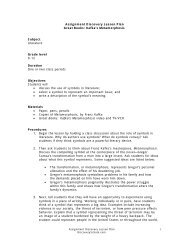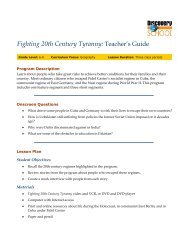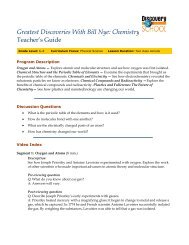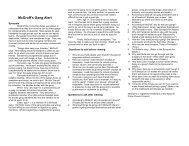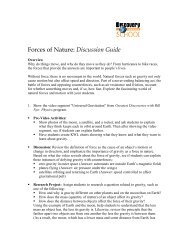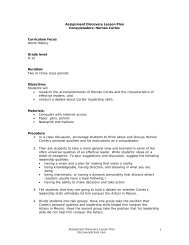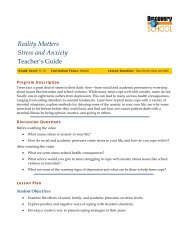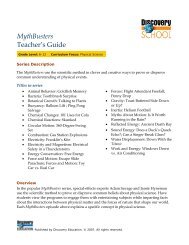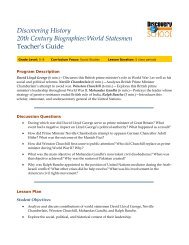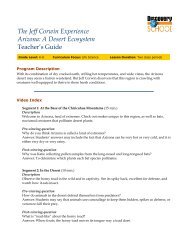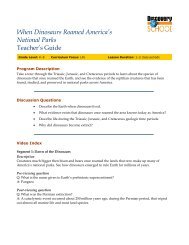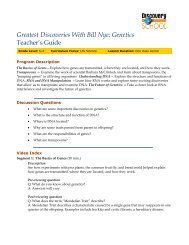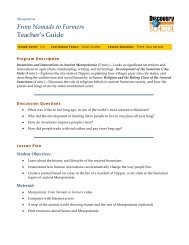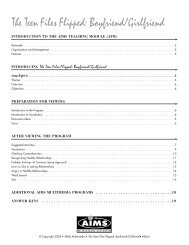Forensic Detectives: Chemistry At Work - Discovery Education
Forensic Detectives: Chemistry At Work - Discovery Education
Forensic Detectives: Chemistry At Work - Discovery Education
Create successful ePaper yourself
Turn your PDF publications into a flip-book with our unique Google optimized e-Paper software.
<strong>Forensic</strong> <strong>Detectives</strong>: <strong>Chemistry</strong> at <strong>Work</strong>: Teacher’s Guide 2<br />
Procedures<br />
1. After watching <strong>Forensic</strong> <strong>Detectives</strong>: <strong>Chemistry</strong> at <strong>Work</strong>, ask students how they would define<br />
chemistry. Help them create a simple definition, such as “<strong>Chemistry</strong> is the structure and<br />
properties of substances and how they react to one another.” or “<strong>Chemistry</strong> is about what<br />
substances are made of and how they combine.”<br />
2. Next, ask students to describe careers that involve chemistry based on what they viewed.<br />
Discuss what the following careers have in common. (They all deal with substances, their<br />
properties, and how they react with each other.)<br />
• Chemists who study the properties and reactive qualities of elements<br />
• <strong>Forensic</strong> scientists who use chemical analysis to identify or match evidence from a crime<br />
scene<br />
• Pyrotechnicians who combine chemicals that produce fireworks displays<br />
• Scientists and engineers who develop new materials<br />
3. Tell students that chemistry is involved in many careers because chemicals are the basis for<br />
many of the products we use every day, from drugs to synthetic fibers to perfume. Almost all<br />
new products, from NASA spaceflight materials to new bubble-gum flavors, depend on<br />
chemistry. Examples follow:<br />
• Chemical engineers use or make new chemicals to solve problems and find practical<br />
applications.<br />
• Materials scientists use chemicals to discover and create new materials with unusual<br />
properties, such as a strong lightweight metal or a plastic that can conduct electricity.<br />
• Pharmacists, doctors, and nurses use chemistry to understand how drugs interact with<br />
the human body.<br />
• Food scientists are involved in making new ingredients or use chemistry to test food for<br />
quality and safety.<br />
• Safety and health inspectors analyze the safety of different places, from restaurants to<br />
water treatment plants.<br />
4. Share the following list of chemistry-related careers with the class:<br />
• Agricultural chemist<br />
• Chemist<br />
• Chemical engineer<br />
• Chemical salesperson<br />
• <strong>Chemistry</strong> teacher or college professor<br />
• Environmental chemist<br />
• Food and flavor chemist<br />
• <strong>Forensic</strong> chemist<br />
Published by <strong>Discovery</strong> <strong>Education</strong>. © 2005. All rights reserved.



